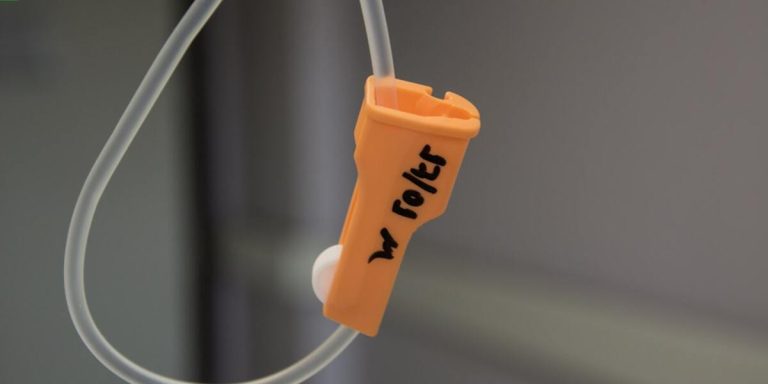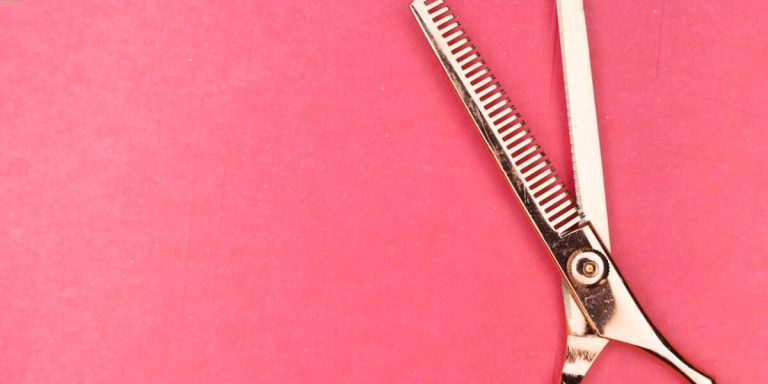Scalp Inflammation Hair Loss Treatment: Unveiling Effective Solutions for Healthy Growth
The journey of exploring the depth of “scalp inflammation hair loss treatment” can lead to a plethora of treatments, remedies and preventive measures. Scalp inflammation not only disrupts your comfort but also fights against healthy hair growth, leading to an untimely baldness or thinning. The gravity that this issue holds is often underscored, which in turn delays effective action.
This post will serve as a guide through the lurking labyrinth of scalp problems; mainly shedding light on one such issue – Inflammation induced Hair Loss. We’ll explore its cause-effect relationship with hair health and navigate through evidence-based solutions promising relief from itchy discomfort and progressive baldness.
Did you know?
Surprisingly, inflammation of the scalp is a significant yet often ignored cause of hair loss. According to dermatologists, reducing scalp inflammation can significantly improve hair growth and thickness.
Understanding Scalp Inflammation and Its Impact on Hair Health
Scalp inflammation is a medical condition that has been linked to various types of hair loss. This occurs when the scalp becomes irritated and inflamed, leading to an unhealthy environment for your hair follicles which ultimately hampers their ability to sustain healthy growth. In 2023, there’s growing awareness about this issue as one of the key contributing factors in different forms of alopecia such as Androgenetic Alopecia (male or female pattern baldness), Telogen Effluvium among others.
Understanding Scalp Inflammation involves recognizing its root causes like bacterial infections, fungal diseases like seborrheic dermatitis or autoimmune disorders such as psoriasis – all leading to itchiness, redness and sometimes even severe pain on the scalp area. These conditions can further damage your hair follicles causing shedding or thinning hairstyles – disrupting not only physical appearance but also self-esteem.
Scalp inflammation is pushing hair health to a tipping point. It disrupts the optimal blood flow needed for our hair to receive nourishment and vital nutrients from the bloodstream. Untreated, this can cause progressive hair loss, threatening one’s crowning glory over time. Fortunately, advanced technology has provided us with effective treatments specifically targeting these issues. We now have endless hope for maintaining our lustrous manes intact despite such inflammatory challenges!
Identifying Signs of Scalp Inflammation
Scalp inflammation, often a silent culprit behind hair loss, isn’t always easy to spot. But if you’re armed with the right knowledge about its symptoms and effects on your scalp health, combating it becomes more manageable. Let’s dive into how to identify signs of scalp inflammation.
The first sign of an inflamed scalp can be persistent itchiness or discomfort. This chronic itching is not just annoying but also damages your delicate follicles when you scratch repeatedly.
Another common symptom is redness in patches across the head area due to increased blood flow caused by inflammation. It might appear subtly at first before becoming progressively prominent over time.
Dandruff could be another sneaky sign indicating something amiss with your scalp health like seborrheic dermatitis – one of the most frequent culprits behind severe dandruff as well as inflammatory conditions causing significant hair loss over time.
Experiencing an unusual amount of heat emanating from your skull? That’s yet another indication that there may exist underlying forms of poor circulation producing excessive fluid buildup leading straight towards destructive pathways for healthy hairs if left unattended!
Additional subtle indications include tenderness upon touch, burning sensations during shampooing or brushing and irregular growth pattern changes all pointing out potential issues lurking beneath surface level appearances which demand immediate attention lest irreversible impacts result ultimately driving away those much cherished locks forevermore!
The Connection Between Scalp Health and Hair Loss
The relationship between scalp health and hair loss is a topic that requires close examination. Scalp inflammation, which is often overlooked or misunderstood, plays an integral role in the health of our hair. It can result from various causes including infections, autoimmune disorders, skin conditions like psoriasis or seborrheic dermatitis and even adverse reactions to certain hairstyling products.
Scalp inflammation contributes significantly to hair loss if not addressed promptly and effectively. This link exists because an inflamed scalp creates a challenging environment for healthy growth of follicles. Hair begins growing at the base in our follicular units beneath the skin’s surface where it receives essential nutrients needed for new cells formation—the building block of your robust strands.
However, when there are constant flare-ups on this fertile ground due to inflammation—think redness, itching or flaking—it leads not only discomfort but also disrupts normal nutrient supply routes causing deficiencies within these burgeoning cells. The knock-on effect? Weakened hairs that fall out easily followed by slower regrowth rates resulting in visible thinning across one’s mane—a concern shared universally particularly as we age further into 2023!
This awareness around ‘scalp wellness’ has fueled innovations aimed towards treating specifically such root-cause issues rather than just focusing on end-symptoms i.e., fallen hairs alone; hence emergence of highly targeted “hair loss treatments” now available over-the-counter which help alleviate inflammatory responses restoring balance back onto your scalp aiding renewed growth processes once again!
Comprehensive Approach to Treating Scalp Inflammation-Induced Hair Loss
In the realm of hair loss treatments, dealing with scalp inflammation-induced baldness demands a comprehensive approach. It’s not merely about addressing visible symptoms; it also requires understanding the underlying factors responsible for such conditions.
Scalp inflammation is commonly triggered by various issues ranging from bacterial infections and allergies to seborrheic dermatitis. These inflammatory disorders damage hair follicles causing significant thinning or complete cessation of your precious mane growth process.
Today’s advancements in technology have brought forth numerous effective treatment options aimed at alleviating both scalp irritation and its consequential hair loss on board. Begining with topical applications like minoxidil known for promoting hair regrowth effectively to corticosteroid lotions that considerably suppress inflammation are available over-the-counter.
Medical Treatments for Targeting the Root Cause
Hair loss brought on by scalp inflammation can be an alarming experience. As your scalp starts to itch and flake, the sight of hair strands accumulating in the shower or brush becomes a daily ordeal. Fortunately, there are several medical treatments aimed at targeting this root cause that you can take advantage of.
Firstly, anti-inflammatory medication is often prescribed by doctors to soothe inflamed scalps immediately. These medicines like corticosteroids not only minimize any swelling but also reduce redness and itching, providing patients with relief while simultaneously slowing down hair loss caused due to inflammation.
Secondly, topical solutions such as Minoxidil (often found under the brand name Rogaine) promote hair growth and regrowth effectively when applied regularly over time. This FDA-approved treatment works best across all stages of balding related to scalp inflammation.
Antibiotics represent another angle for tackling this issue head-on since certain types combat particular strains responsible for causing infections leading up-to inflammatory responses resulting in shedding locks prematurely.
Natural Remedies to Soothe an Irritated Scalp
In managing hair loss due to scalp inflammation, it’s essential to incorporate natural remedies. They play a crucial role by soothing the irritated scalp and stimulating healthy hair growth.
Firstly, Tea Tree Oil runs in the front line of these effective methods. Boasting powerful anti-inflammatory properties, this oil can decrease symptoms related to an inflamed scalloped dramatically when used consistently.
Secondly is Apple Cider Vinegar (ACV), a well-known treatment for various skin conditions including your aggravated scalp – thanks largely because of its pH balancing effect. The application process simply involves diluting ACV with water before massaging into your scalp gently.
Rosemary Oil follows next as another potent remedy worth trying out. Not only does rosemary oil offer remarkable antiseptic benefits but also spurs circulation on your head; thus encouraging new hair development even while calming inflammation down drastically.
Aloe Vera stands tall amid these organic treatments too! This plant’s gel holds impressive moisturizing qualities that cool and nourish an upset scalp effortlessly causing healthy strands to sprout up noticeably after some weeks.
Lastly yet significant enough not be overlooked is Coconut Oil – indeed you read right! It serves as an exceptional source of fatty acids which penetrates deep within your follicles thereby hydrating them from inside out plus alleviating any present irritation effectively.
Maintaining Healthy Scalp Post-Treatment: Prevention Strategies
Firstly, utilizing soothing shampoos and conditioners specifically designed for inflamed scalps is essential as they are loaded with ingredients like Aloe Vera and tea tree oil that can help lessen irritation whilst promoting overall scalp health.The importance of proper hydration for your body cannot be overstated either since it profoundly impacts skin health including our scalps.
Furthermore, to prevent further inflammation and enhance treatment outcomes, make these lifestyle changes:
- Eat balanced meals full of nutrient-rich foods to strengthen your immune system’s fight against inflammatory triggers.
- Engage in stress-reducing activities like yoga or meditation to improve your emotional well-being, which recent 2023 studies suggest might influence hair growth patterns.
Remember – sustainability matters! Adopting these strategies consistently gives better chances at decreasing long-term after-effects associated from conditions like scalp inflamation induced hair loss treatments.
Daily Habits for Sustained Scalp Wellness
Indeed, anyone who has experienced hair loss and undergone treatment understands the importance of maintaining a healthy scalp. Let us delve into daily habits that can boost sustained scalp wellness.
1. Cleanse Regularly: Routine cleansing gets rid of dead skin cells, excess oil, sweat and dirt while fighting dandruff and other conditions that could exacerbate inflammation post-treatment.
2. Use Gentle Hair Products: Selecting products with natural ingredients like jojoba oil or tea tree extract rather than harsh chemicals reduces chances of irritation or potential allergic reactions – factors linked to recurrent inflammation.
3. Utilize Scalp Massages: This not only stimulates blood flow but also distributes your body’s natural oils uniformly across the scalp reducing dryness which can contribute towards chronic inflammations over time.
5.Moderation In Sun Exposure : Protecting your head from sun damage is essential as UV rays may lead to temporary protein breakdown affecting hair building-up processes thus promoting possible relapse.
Incorporating these everyday strategies lay a foundation for optimal recovery preventing future occurrences aligning well within “scalp inflammation hair loss treatments.” Remember it’s what you do after treatment determines if regrowth remains robust or we experience another round of shedding again due to negligence hence don’t compromise on preventive measures!
Nutritional Support for Stronger, Resilient Hair Follicles
The effectiveness of any hair loss treatment often lies in the condition of your scalp. A healthy scalp fosters resilient and robust hair follicles, vital for strong, shiny locks. While it’s crucial to use appropriate topical or oral treatments recommended by dermatologists for managing scalp inflammation that contributes to hair loss, nutritional support can make a notable difference too.
Incorporate nutrient-dense foods into your daily diet to promote healthier follicles and reduce inflammation.
1) Omega-3 fatty acids: These healthy fats found prevalently in fish like salmon and mackerel curtail inflammation while promoting shine and strength.
2) Vitamins A & E: Known as skin-loving vitamins due their affinity towards maintaining epithelial cells integrity; sweet potatoes, almonds provide these essential nutrients which ensure better protection against environmental damage.
3) Biotin: Often hailed as the ‘hair growth vitamin’, biotin is present in eggs, avocados etc., contributing significantly towards healthier hairs from within.
4) Zinc & Selenium: Both minerals directly maintain proper functioning of sebaceous glands hence ensuring lesser clogging incidences leading eventually to reduced inflammations – shellfishes alongside other sea-foods act as excellent sources here.
5) Hydration cannot be undermined either especially considering our scalps’ porous nature – drink enough water every day!
Conclusion
In the quest for healthy, luscious locks, it’s clear that addressing scalp inflammation hair loss treatment is not a task to be overlooked. It’s crucially important as good hair day shouldn’t just be an occasional treat but your everyday reality! Utilizing science-backed treatments and fostering consistent habits towards maintaining your scalp health can pave the way intriguingly toward this goal.
Remember, everyone’s journey with their hair might differ slightly due to numerous factors like genetics or lifestyle choices. To explore more on ‘Hair Loss Treatments’, our website serves as a comprehensive reservoir of information tailored to fit every individual need in this regard. Don’t let thinning tress cause distress when solutions are at hand – delve into exploring more right away!







